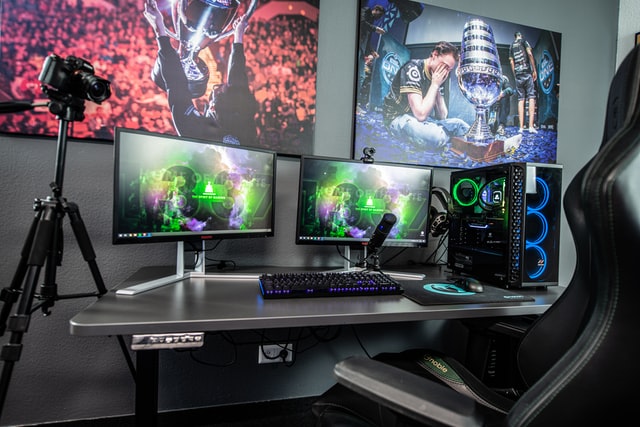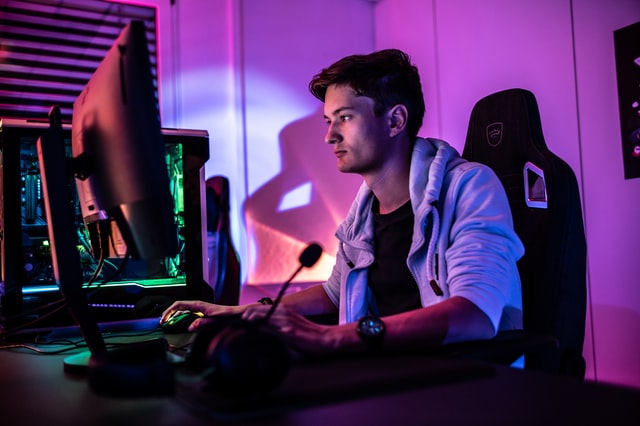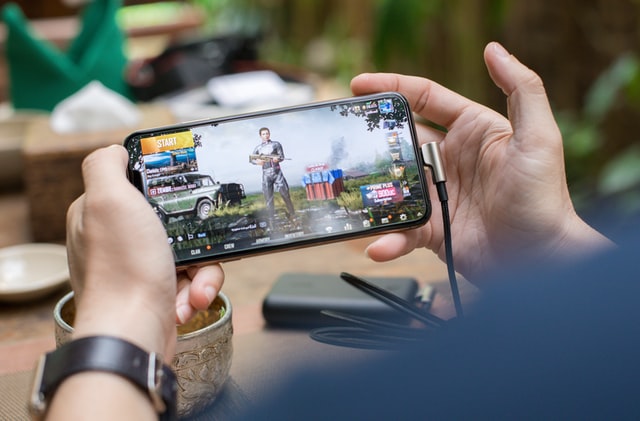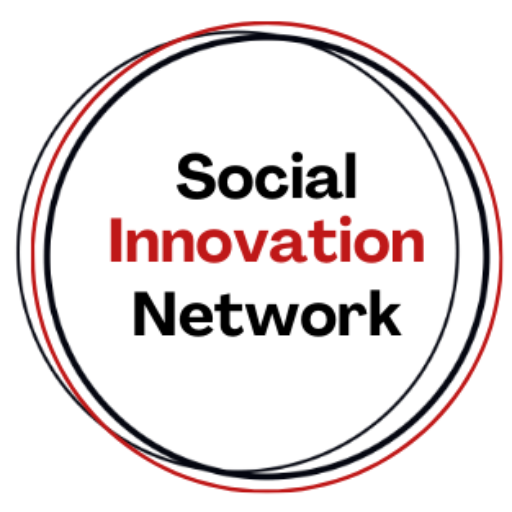It was so exciting to play, hit the ball, run around, enjoy the sun and come home late during childhood. They were happy and exciting times in our lives. Playing games is easy, fun and comes naturally to us. From running around outside to digital activities indoors, a lot has changed, though the convenience, fun and enjoyment remain the same. Games relax the mind and provide space for creativity.
Bringing gamification into education is a challenge, especially when you want to benefit people with fewer opportunities, such as young migrants, newcomers, asylum seekers and refugees (MNAR). MNAR face many challenges in today’s society, especially in the host country: to integrate into a new community, develop the skills they need to sustain themselves, learn a new language and transform their lives with a career in which they are interested. Almost all MNARs have smartphones, which connect them to the world in which they live. What if a smartphone could do more than that? It is untold and unthinkable to mention how we could use a screen to empower ourselves and connect with the community and the world. Because of the pandemic, many areas of our lives have been digitized, and people now more than ever have more information when they need it at their fingertips. Due to the fact that the pandemic has impacted increasing levels of unemployment and weakened the labor market, people such as new migrants, new arrivals, asylum seekers and refugees (MNAR) have become more vulnerable and isolated now more than ever.

Developing games with user-friendly platforms for engaging with MNARs is an essential aspect of using gamification techniques to support them in their career orientation. Hence, enhancing their employability by guiding them through the available career pathways, showing them how locals support them and therefore an important factor in gaining their trust and encouraging them to join in the fun of gaming!
Digital media and Storytelling
In the framework of the European Project, UpGrad_Me 2.0 project, have been created different tools that will allow professionals dealing with young MNAR to count with the most accurate supporting and inspiring resources in order to bring a better career orientation and improve the employability of young MNA through gamification. Following there is a compilation of good practices in Digital media and Storytelling.
Toolkit- Digitalization and innovation of Youth work methodology for inclusion of immigrants
Website: https://learning-wizard.com/wp-content/uploads/2021/11/DigYWincIMM-_O1_EN.pdf
Country: Germany, Croatia, Sweden, Serbia
Short description: Nowadays young people are engaged both with new technologies and digital media. Establishing contact with youngsters is becoming more and more complicated for youth workers who struggle in finding ways to contact and dialogue with the youngsters. The usual methodologies seem not to attract youngsters’ attention anymore. This project responds to the need of creating innovative approaches
towards youngsters who spend plenty of their time online. The main aim of this project is to create a toolkit for education of youth workers however, there is a focus on working with immigrants specially.

This activity consists in creating a short digital media production where the youngster can share their everyday aspects of their story. Nowadays social media is about showing through different apps how your life is. Digital storytelling activity pretends to teach young people about basics of digital storytelling and inspire them to share their story. These training courses can be organized offline and online. In digital narrative, design and photography are essential. Helping youngsters to become creators and designers can be very beneficial for them, as they can find a new career in digital work. This activity pretends to motivate youngsters to create infographics or to redesign a website.
Objective: To empower youth workers with skills and knowledge so they can implement digital tools (to make them use online work in their everyday activities); To build competences of youth workers in escape room/adventure and Gamification methodology (online and offline); To encourage more youth workers to organize innovative and creative gamified activities online and offline; To attract more immigrant youngsters to join this youth work activities by multiplying the adventure rooms in the local communities and, at the same time, increasing inclusion among the youngsters.
EMysteries
Website: https://www.emysteries.eu/el/
Country: Cyprus, Portugal, Denmark, Spain
Short description: The eMysteries project offers a rich media mobile-device- supported interactive environment which can be utilized for educational purposes among upper secondary education students (15-18 year-olds) in order to enhance their literacy skills by actively engaging them in close reading activities. By using the interactive environment, students will have the opportunity to create their own detective stories that can be adapted to various characters and plots. The project also offers a Teacher’s Toolbox and a MOOC dedicated to enhancing teacher’s capacity and professionalism on how to use the eMysteries environment and resources in their daily practices.
Objectives: By the time young people in the EU leave compulsory education most of them have regularly made use of computers and the internet for a variety of activities. While the most common activities of young people using mobile phones are writing through text messaging (“texting”) and reading for information search and entertainment purposes, the 2015 Programme for International Student Assessment (PISA) results showed that one in five pupils in the European Union have insufficient proficiency in reading.

Game Changer
Website: https://logos.ngo/what-we-do/game-changer/
Country: Poland, Ukraine
Short description: Game Changer is a gamification project aimed to raise awareness among young people aged between 12-30. The Game Changer project involves the use of offline Social City Games and online RPG (role-playing games), which will promote tolerance, civic engagement, diversity and inclusion through gamification. The offline Social City Games are located in Poznan-Poland and in Bila Tserkva-Ukraine. Online games: “Out of the box” is an online negotiation game that shows polarization mechanisms, which effectively is one of the biggest factors in the radicalization process. “After The Fall” is an online game that takes place in the world after huge catastrophe. It aims to show the importance of cooperation for common good. Offline games: “After the Fall” is a team-based tactical game that aims players to role- play in order to facilitate discussion surrounding the topic of environmental change and activism. “Uncharted” is a team-based exploration game that utilizes role playing to focus on the problem of hate speech and negative views towards people with different backgrounds, beliefs, culture, etc. that often results in the development of polar and extreme ideology.
Objectives: to raise awareness among young people aged between 12-30 and to promote tolerance, civic engagement, diversity and inclusion.







